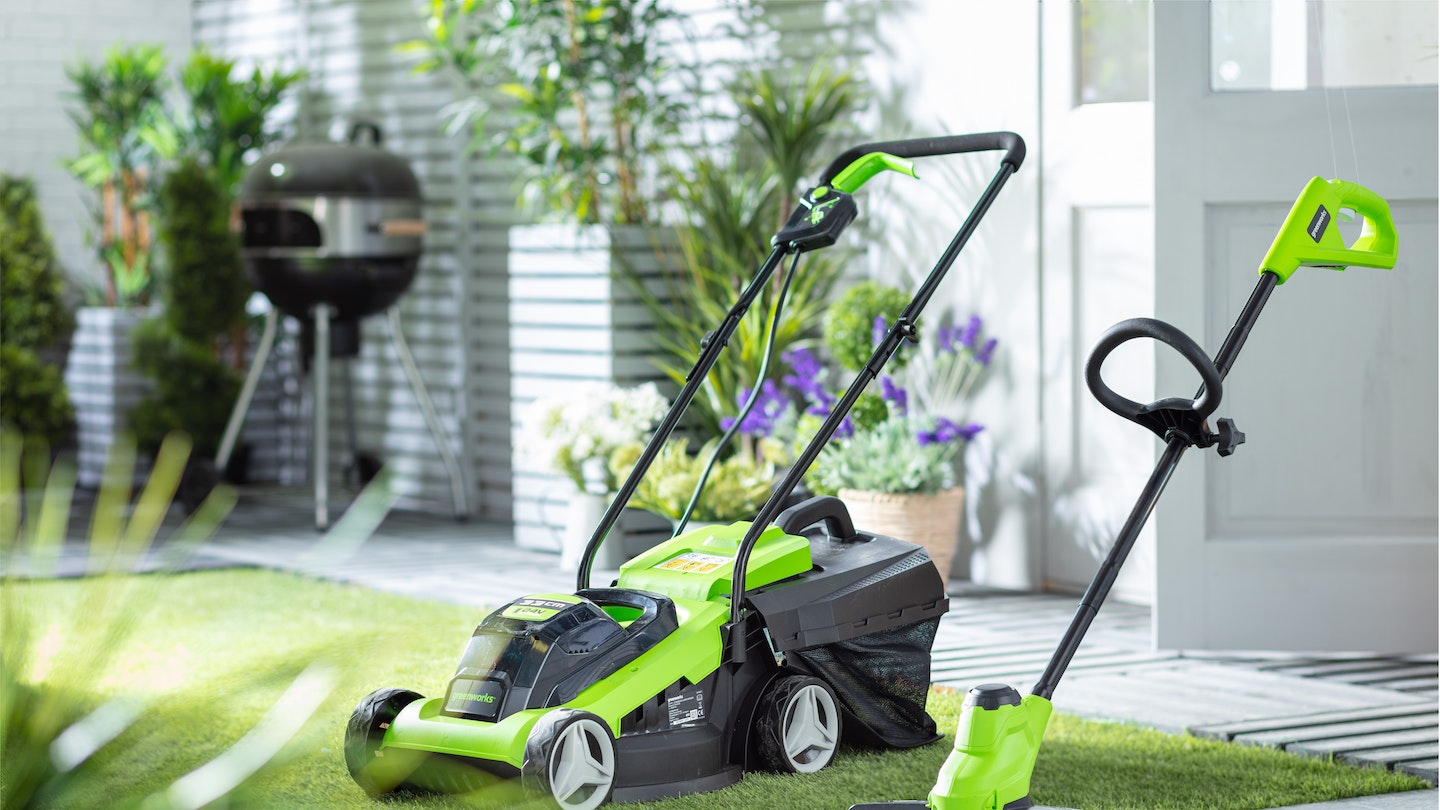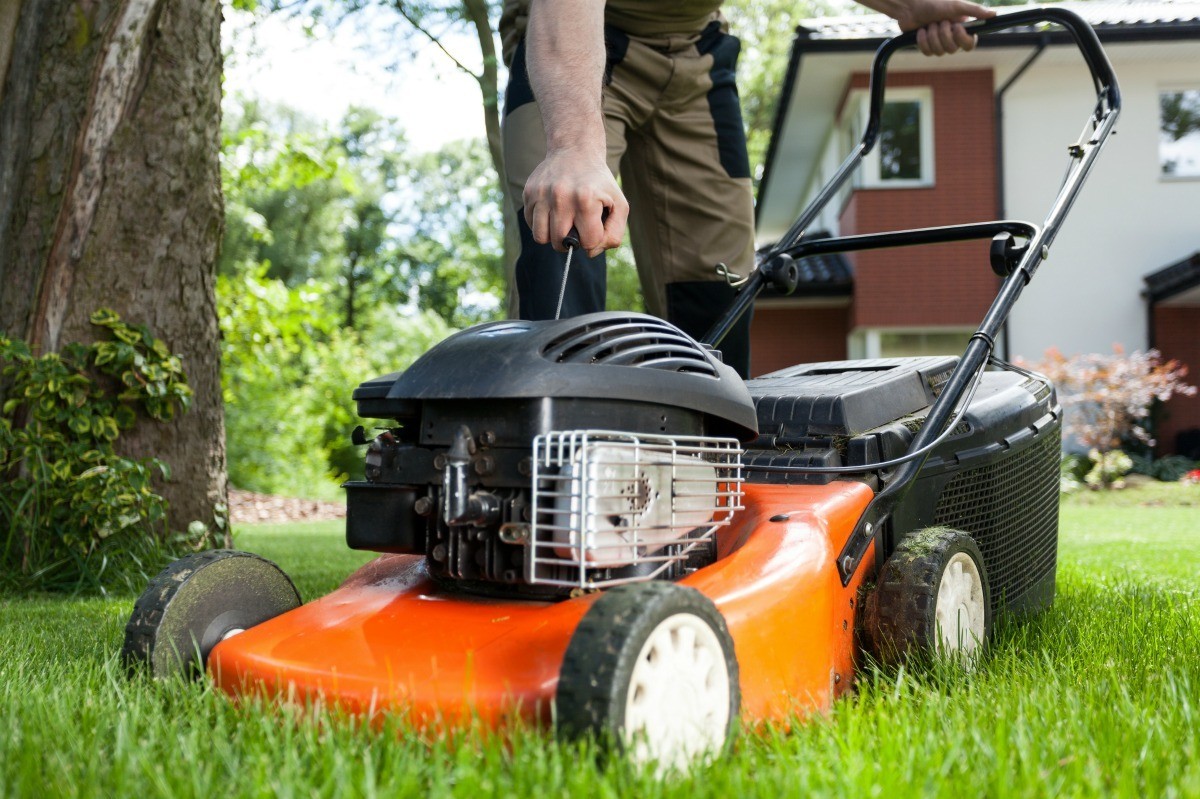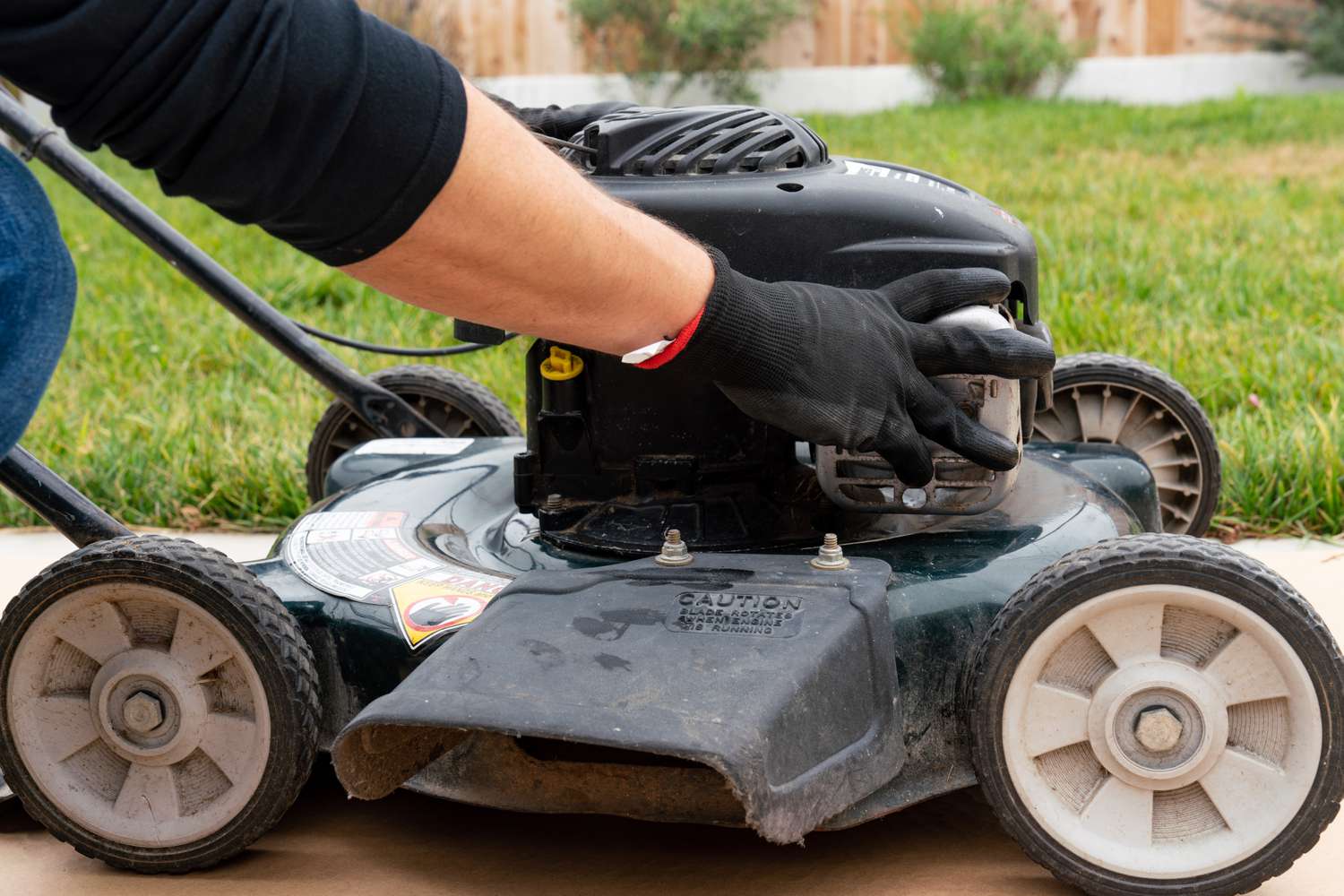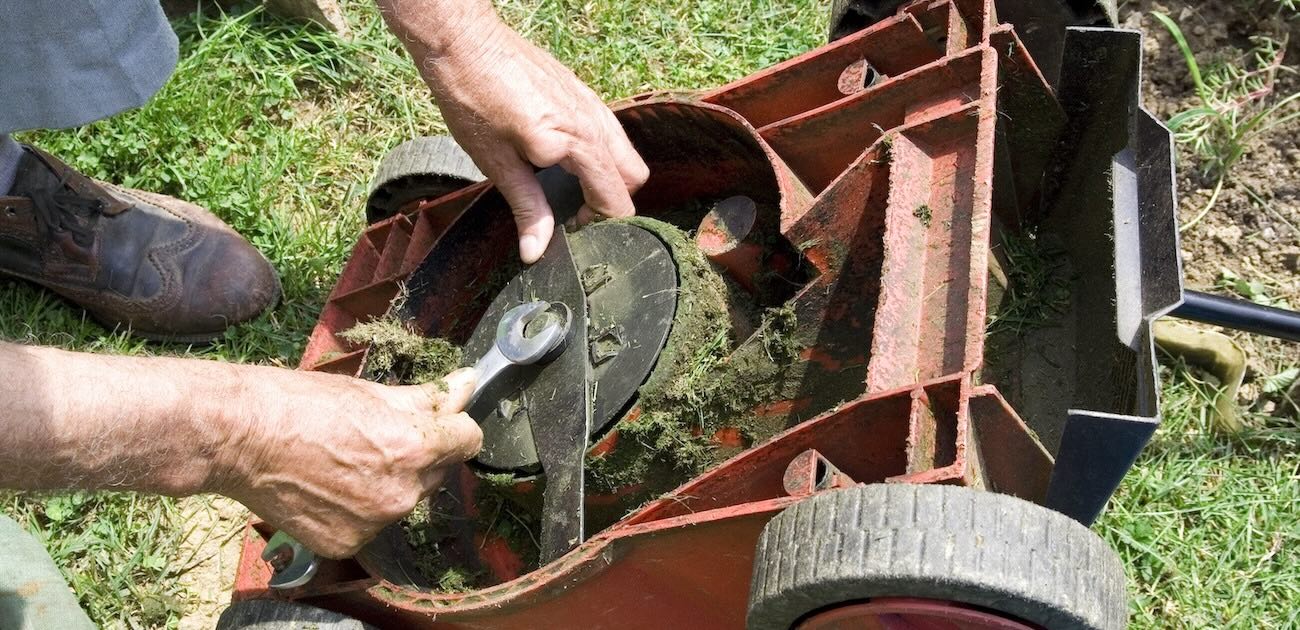Home>Gardening & Outdoor>Garden Tools & Equipment>How Loud Is A Lawnmower


Garden Tools & Equipment
How Loud Is A Lawnmower
Modified: February 18, 2024
Discover the noise level of a lawnmower and tips for reducing sound while using garden tools and equipment. Find out how loud is a lawnmower and how to minimize noise in your yard.
(Many of the links in this article redirect to a specific reviewed product. Your purchase of these products through affiliate links helps to generate commission for Storables.com, at no extra cost. Learn more)
Introduction
When it comes to maintaining a pristine lawn, a lawnmower is an indispensable tool. However, beyond its utility, have you ever wondered about the noise it generates? In this article, we'll delve into the world of lawnmower decibels and explore the potential effects of their loud operation on both users and those nearby.
Lawnmowers are a ubiquitous sight during the warmer months, as homeowners strive to keep their lawns neatly trimmed. Yet, the noise produced by these machines often goes unnoticed amidst the focus on their cutting prowess. Understanding the decibel levels of lawnmowers and the potential impact of their noise is crucial for both users and bystanders.
The roar of a lawnmower might seem innocuous, but it's essential to consider its potential effects, especially in residential areas where multiple lawns are tended to simultaneously. By shedding light on the decibel scale and the typical noise levels of lawnmowers, we aim to provide insight into the significance of this often-overlooked aspect of yard maintenance. Let's embark on a journey to uncover the true loudness of lawnmowers and explore the measures one can take to mitigate the impact of their noise.
Key Takeaways:
- Lawnmowers can reach noise levels of 90-100 decibels, comparable to a motorcycle or chainsaw, potentially causing hearing damage. Using quieter equipment and maintaining lawnmowers can help protect hearing.
- Prolonged exposure to loud lawnmower noise can lead to hearing loss, stress, and disrupt wildlife habitats. Using hearing protection and being mindful of timing can mitigate these effects.
Read more: How Loud Is A Blender
The Decibel Scale
Before delving into the specific noise levels of lawnmowers, it’s essential to grasp the concept of decibels and the scale used to measure sound intensity. The decibel scale, abbreviated as dB, is a logarithmic unit that quantifies sound levels based on the sensitivity of the human ear to different frequencies. This scale is crucial for understanding the potential impact of various sources of noise, including lawnmowers.
Sound intensity is measured in decibels, with the threshold of hearing set at 0 dB. Every increase of 10 dB represents a tenfold increase in sound intensity. For example, a sound at 20 dB is ten times more intense than a sound at 10 dB. At 30 dB, it is one hundred times more intense, and so on. This logarithmic nature of the decibel scale highlights the significant impact that seemingly small changes in decibel levels can have on perceived loudness.
Understanding the decibel scale is crucial for gauging the potential effects of prolonged exposure to various noise sources, including those encountered during routine lawn maintenance. By comprehending the scale’s logarithmic nature, individuals can better appreciate the significance of seemingly minor differences in decibel levels and their potential impact on hearing health.
With this foundational knowledge of the decibel scale in place, we can now explore the specific decibel levels associated with lawnmowers and gain insight into how their noise compares to other common environmental sounds. This understanding will provide valuable context for evaluating the potential effects of lawnmower noise and implementing strategies to protect hearing health.
Typical Decibel Levels of Lawnmowers
As homeowners embark on the task of mowing their lawns, the noise generated by their lawnmowers becomes a prevalent aspect of the outdoor environment. The decibel levels of lawnmowers can vary based on factors such as the model, engine type, and overall condition of the equipment. Understanding the typical decibel levels associated with these machines is essential for assessing their potential impact on hearing and overall noise pollution.
Gas-powered lawnmowers, commonly used for larger yards, typically produce noise levels ranging from 90 to 100 decibels when measured at a distance of three feet. This places them in the range of sustained exposure that can lead to potential hearing damage over time. In contrast, electric lawnmowers, known for their quieter operation, generally emit noise levels between 75 and 85 decibels at the same distance. While electric models offer a quieter alternative, they still warrant consideration for noise mitigation, especially in residential areas where multiple lawns are tended to in close proximity.
It’s important to note that the decibel levels mentioned above are approximate and can vary based on the specific make and model of the lawnmower, as well as the condition of its components. Factors such as blade sharpness, engine maintenance, and overall wear and tear can influence the actual noise output of a lawnmower. Additionally, the acoustic properties of the surrounding environment, such as the presence of nearby structures that reflect sound, can impact the perceived loudness of the machine.
When comparing the decibel levels of lawnmowers to other common environmental sounds, it becomes evident that their operation can contribute significantly to overall noise pollution. For instance, a gas-powered lawnmower at 100 decibels is comparable in intensity to a motorcycle passing at close range or a chainsaw in operation. This highlights the substantial impact that routine lawn maintenance can have on the acoustic environment of residential areas.
By understanding the typical decibel levels of lawnmowers, individuals can make informed decisions regarding the mitigation of their noise and the protection of their hearing. This knowledge serves as a crucial foundation for implementing measures to minimize the impact of lawnmower noise on both users and those in the vicinity, ultimately contributing to a more harmonious auditory landscape.
Wearing ear protection when using a lawnmower is important, as the average lawnmower can produce noise levels of around 90 decibels, which can cause hearing damage over time.
Effects of Loud Noise
The pervasive presence of loud noise, including that generated by lawnmowers, can have a range of effects on individuals and their immediate environment. Understanding these effects is crucial for appreciating the significance of mitigating noise pollution and protecting hearing health, especially in the context of routine lawn maintenance.
Prolonged exposure to loud noise, such as that produced by lawnmowers operating at high decibel levels, can lead to various adverse effects on hearing. One of the most significant impacts is noise-induced hearing loss, which occurs gradually over time due to the cumulative effect of high-intensity sound on the delicate structures of the inner ear. This type of hearing loss is often irreversible and can significantly diminish an individual’s quality of life.
Beyond the realm of hearing health, loud noise can also have broader physiological and psychological effects. It can elevate stress levels, disrupt sleep patterns, and contribute to feelings of irritability and fatigue. In residential areas where multiple lawns are tended to simultaneously, the collective noise from lawnmowers can create an acoustic environment that is not conducive to relaxation and well-being.
Furthermore, the impact of loud lawnmower noise extends beyond the immediate users to encompass the surrounding wildlife and ecosystem. Prolonged exposure to high-intensity noise can disturb wildlife habitats, interfere with animal communication, and contribute to ecological imbalance. This underscores the importance of mitigating noise pollution from routine yard maintenance activities.
It’s important to recognize that the effects of loud noise are not limited to the moment of exposure; they can have lasting repercussions on both individuals and the environment. By understanding these effects, individuals can appreciate the urgency of taking proactive measures to minimize the impact of lawnmower noise and prioritize the well-being of themselves, their neighbors, and the ecosystem at large.
Tips for Protecting Your Hearing
Given the potential impact of lawnmower noise on hearing health, it’s essential to implement strategies that mitigate the effects of loud noise during routine lawn maintenance. By adopting proactive measures, individuals can safeguard their hearing and contribute to a quieter, more harmonious soundscape in their residential areas. Here are valuable tips for protecting your hearing while using lawnmowers:
- Use Hearing Protection: When operating a lawnmower, especially one with high decibel levels, wearing earmuffs or earplugs can significantly reduce the intensity of the noise reaching your ears. These protective devices create a barrier that diminishes the impact of the lawnmower’s sound, helping to preserve your hearing health.
- Choose Quieter Equipment: When selecting a lawnmower, consider models known for their quieter operation, such as electric mowers. While all lawnmowers produce some level of noise, opting for a model with lower decibel levels can contribute to a more tranquil outdoor environment for both users and neighbors.
- Maintain Your Equipment: Regular maintenance of your lawnmower, including engine tune-ups and blade sharpening, can help ensure that it operates as quietly as possible. Properly maintained equipment is less likely to produce excessive noise, thereby reducing its impact on the surrounding environment.
- Be Mindful of Timing: Consider the timing of your lawn maintenance activities to minimize disruptions to your neighbors. Avoid early morning or late evening mowing sessions, and be cognizant of local noise ordinances that specify permissible hours for using loud equipment.
- Establish Buffer Zones: If possible, create natural or artificial barriers, such as hedges or fences, to help contain the sound of your lawnmower within your property. This can help mitigate the noise that reaches neighboring homes and outdoor spaces.
- Alternate Yard Maintenance Methods: In areas where noise mitigation is a priority, explore alternative yard maintenance methods that involve less noise, such as manual grass shears or reel mowers. These quieter approaches can contribute to a more peaceful outdoor environment.
By incorporating these tips into your lawn maintenance routine, you can take proactive steps to protect your hearing and minimize the impact of lawnmower noise on yourself and those in your vicinity. Additionally, by raising awareness of these strategies within your community, you can contribute to a collective effort to create a more serene and harmonious auditory landscape.
Read more: How To Clean A Lawnmower
Conclusion
As we conclude our exploration of the decibel levels of lawnmowers and the potential effects of their noise, it’s evident that the impact of routine yard maintenance extends beyond the visual appeal of well-trimmed lawns. The auditory landscape of residential areas is intricately linked to the operation of lawnmowers, shaping the overall quality of the outdoor environment. By understanding the significance of lawnmower noise and its potential effects, individuals can take proactive measures to mitigate its impact and safeguard their hearing health.
The decibel scale serves as a crucial tool for comprehending the intensity of lawnmower noise and its potential implications for both users and those in the vicinity. With gas-powered lawnmowers typically emitting noise levels between 90 and 100 decibels, and electric models ranging from 75 to 85 decibels, it’s clear that these machines can contribute significantly to overall noise pollution in residential areas. This underscores the importance of implementing strategies to minimize the impact of lawnmower noise and prioritize hearing protection.
By embracing tips such as using hearing protection, choosing quieter equipment, maintaining lawnmowers diligently, being mindful of timing, and exploring alternative yard maintenance methods, individuals can actively contribute to a more harmonious outdoor auditory environment. These proactive measures not only protect hearing health but also foster a sense of consideration for neighbors and the surrounding ecosystem.
As we navigate the realm of routine lawn maintenance, let’s strive to strike a balance between the upkeep of our outdoor spaces and the preservation of a tranquil auditory landscape. By raising awareness of the significance of lawnmower noise and the measures for mitigating its impact, we can collectively contribute to a more serene and harmonious outdoor environment. Let’s embark on this journey with a commitment to protecting our hearing and nurturing a soundscape that enhances the well-being of both individuals and the community at large.
Frequently Asked Questions about How Loud Is A Lawnmower
Was this page helpful?
At Storables.com, we guarantee accurate and reliable information. Our content, validated by Expert Board Contributors, is crafted following stringent Editorial Policies. We're committed to providing you with well-researched, expert-backed insights for all your informational needs.















0 thoughts on “How Loud Is A Lawnmower”